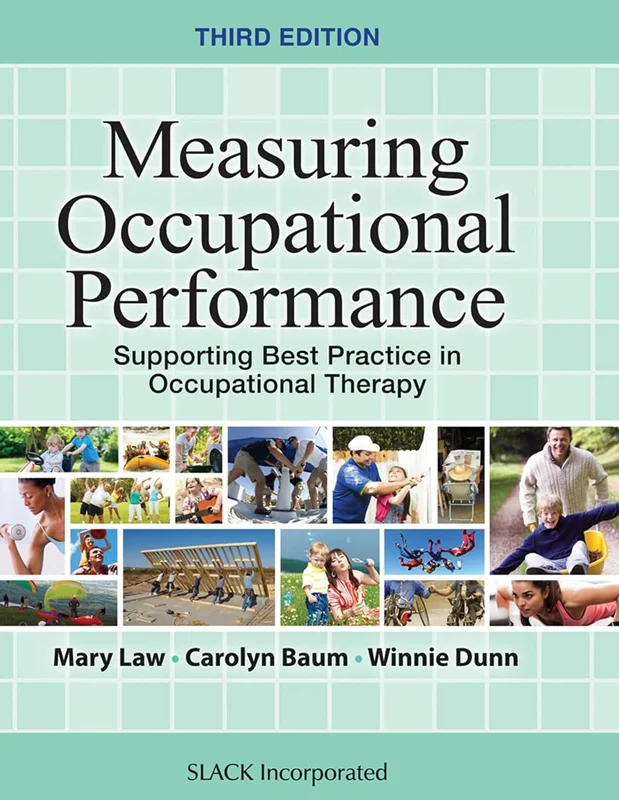Measuring Occupational Performance: Supporting Best Practice in Occupational Therapy 3rd Edition
Mary Law, Carolyn Baum, Winnie Dunn, B086Z5M916, 1630910260, 1630914177, 9781630910266, 9781630914172, 9781630914165, 978-1630910266, 978-1630914172, 978-1630914165
English | 2017 | Original PDF | 5 MB | 467 Pages
As the profession of occupational therapy continues to mature and expand its practice, the measurement of occupational performance is one of the key avenues that all practicing clinicians will need to explore and master. Measuring Occupational Performance: Supporting Best Practice in Occupational Therapy, Third Edition summarizes the measurement tools needed to assess client occupational performance, to provide the best intervention, and to document the effectiveness of that intervention. These measurement tools are not just a compilation of all that are available for measurement relevant to occupational therapy; they are an elite group of tools carefully selected by the editors through a process of rigorous theoretical, clinical, and scientific reasoning.
In this Third Edition, Drs. Mary Law, Carolyn Baum, and Winnie Dunn have updated current chapters and added new topics that have not been covered in past editions, such as a chapter on measuring school performance, a key area of practice. Also included is a chapter on measurement principles and development to highlight the concepts common to all the measures included in the text. The Third Edition also has a focus on the best measures and measures that are used most frequently.
Features of the Third Edition:
- Offers insight into the importance of measuring functional performance, methodologies, measurement issues, and best approach for outcome measurement
- Conveys a broad focus on occupational performance and offers examples from a wide range of practice settings and from multiple spots throughout the lifespan
- Explains the technical aspects of measurement development and methodologies and which components of functioning are to be measured and how
- Develops an understanding of the theoretical aspects and evidence for both standardized tests and non-standardized tests

